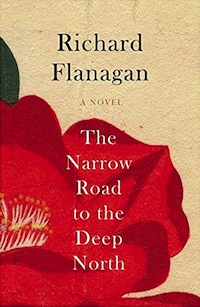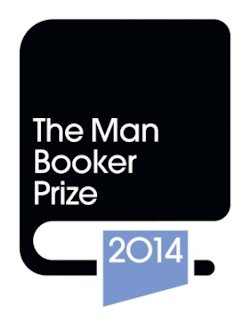More than a year ago, at an impromptu press conference scheduled after the Sunday Times had gone and given the game away, the Man Booker Prize announced a novel new order. Going forward, the award would go—to paraphrase administrator Ion Trewin—to the best book to be released in the English-speaking world each year.
The eligibility of American texts in a field formerly exclusive to books from British or Commonwealth countries inevitably ruffled a few feathers. Just the other day, Peter Carey—one of only three writers to have won the prize twice—spoke to The Guardian about how the “particular cultural flavour” that set the Man Booker Prize apart would likely be lost in the process of this exercise in what he described as “global marketing.”
Turns out… there was nothing to worry about! Though two Americans were in contention—namely Karen Joy Fowler and Joshua Ferris—the odds, evidently, were stacked against them. And I do mean the odds:
The favourite to accept the award from the Duchess of Cornwall at the Guildhall in London is Neel Mukherjee, the Calcutta-born Briton, for The Lives of Others, his story of family life set in the city of his birth. William Hill has him at odds of 5/2, followed by Howard Jacobson at 9/2, for his novel, J, a story set in the future after some unidentified but momentous catastrophe has taken place.

I dare say the bookies may have been off their game, as neither The Lives of Others nor J took the trophy home. What a watershed moment for genre fiction it would have been if that latter had, however! As the Guardian illustrated with a fantastic graphic, Howard Jacobson’s deceptive dystopia was poised to be the first book set in the future to win the Booker in its nearly 50 year history.
But enough beating around the bush… and, um, pardon the pun. What pun? Well. The winner, ultimately, was an Aussie author: Richard Flanagan, for his “timeless depiction of war” in The Narrow Road to the Deep North.
At its heart, the book tells the excoriating, horrific story of what it was like to be a prisoner of war forced to work on what has become known as the Death Railway between Thailand and Burma.
But the novel is about much more than that, said [the chair of the judges, AC] Grayling. “It is not really a war novel, it is not about people shooting one another and bombs going off, it is much more about people, their experience and their relationships. What’s interesting about it is that it is very nuanced, as if everyone on the Burma railway, both sides of the story, were victims.”
In his acceptance speech, Flanagan took the opportunity to talk about the novel as we know it:
I do not share the pessimism of the age about the novel. They are one of our greatest spiritual, aesthetic and intellectual inventions. As a species it is story that distinguishes us, and one of the supreme expressions of story is the novel. Novels are not content. Nor are they are a mirror to life or an explanation of life or a guide to life.
Novels are life, or they are nothing.

Of the six novels shortlisted, I’m afraid I’ve only read—and reviewed—J by Howard Jacobson at the time of this writing, so I don’t want to comment on whether or not The Narrow Road to the Deep North is a worthy winner—though I do, to be sure, applaud its author’s assertions.
Here’s a thing I am unabashedly happy about, however: the winner of the rather more irreverent Not the Booker Prize, which was announced on Monday morning. The Visitors by Simon Sylvester is a haunting story of strangers, Scotland and—you guessed it—selkies.
In other words? Genre fiction, folks.
We win some; we lose some. And I’m good with that. You?
Niall Alexander is an extra-curricular English teacher who reads and writes about all things weird and wonderful for The Speculative Scotsman, Strange Horizons, and Tor.com. He’s been known to tweet, twoo.










